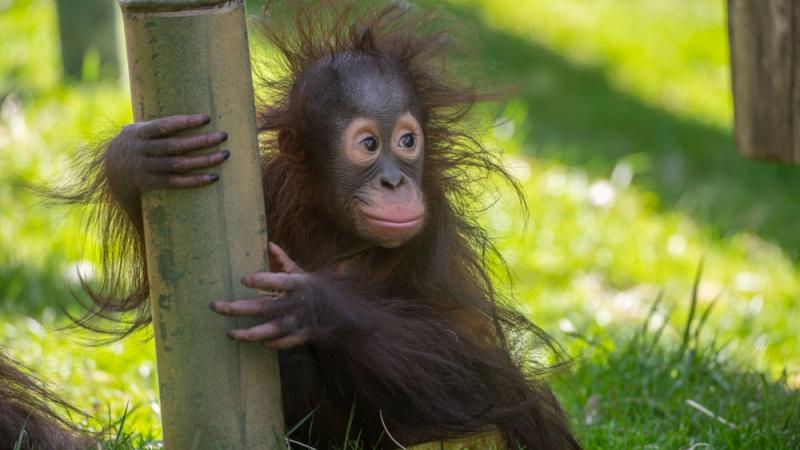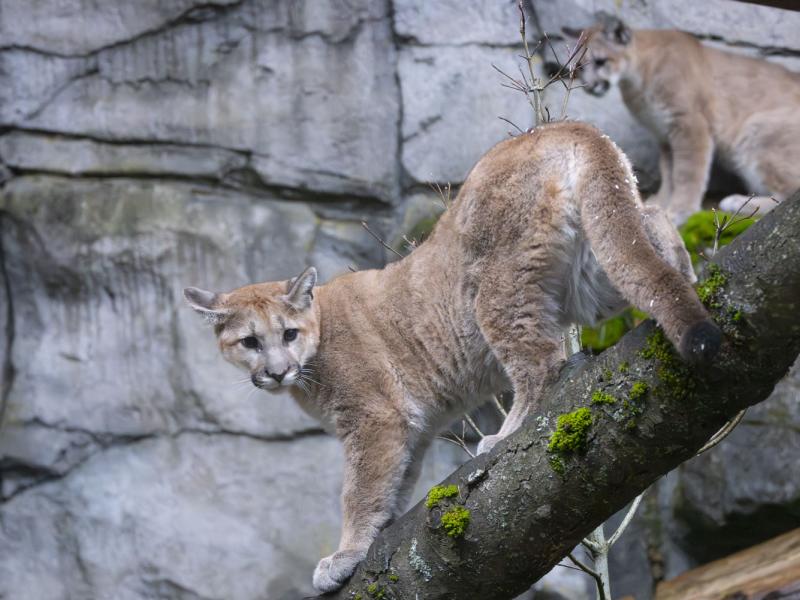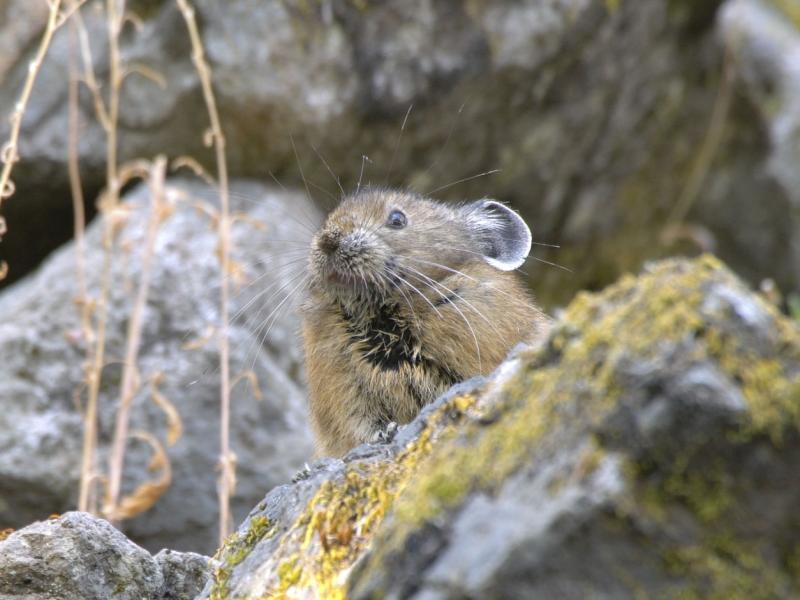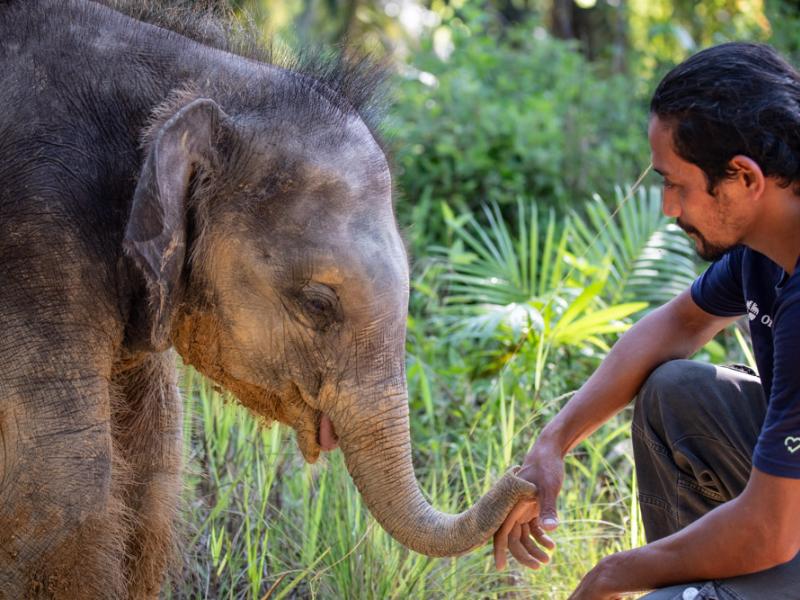One year of Jolene: Orangutan baby celebrates birthday

Jolene’s ‘locks of auburn hair’ continue to impress as she learns to walk and climb
The smallest member of the Oregon Zoo orangutan family reached a big milestone this week: Jolene is 1 year old. Born April 13, 2022, the young orangutan is learning to walk and climb on her own, though she never ventures far from her mom, Kitra.
“Young orangutans stay with their mothers for about 8 to 10 years,” said Kate Gilmore, who oversees the zoo’s primate area. “Jolene is learning to explore, but Kitra keeps a close eye on her.”
Care staff helped Kitra to prepare for motherhood throughout her pregnancy. They worked with her to get ultrasounds to monitor the health of the pregnancy, showed her how to nurse using a doll and readied supplies in case her baby needed supplemental feedings. Kitra was a first-time mom, and they wanted to be ready for anything. According to Gilmore though, the 22-year-old Bornean orangutan didn’t need much help.
“We’ve never been so happy to put in hours of work for something that didn’t happen,” Gilmore said. “We were ready to step in if Kitra needed us, but she’s done everything perfectly on her own.”
Keepers named the young orangutan Jolene, inspired by the line in the Dolly Parton classic that goes, “Your beauty is beyond compare / with flaming locks of auburn hair.”
Orangutan babies are born after a gestation period of around 8.5 months and typically weigh a little over 3 pounds at birth. Young orangutans are completely dependent on their moms for food and getting around during their first two years of life. The bond between an orangutan mom and her baby is one of the closest of any species.
Kitra moved to the Oregon Zoo in 2015 from Cleveland Metroparks Zoo, joining male orangutan Bob, the baby’s father, who had arrived from South Carolina’s Greenville Zoo the previous year. The moves were based on a recommendation from the Association of Zoos and Aquariums’ Species Survival Plan for orangutans. The AZA has established SSPs for many threatened or endangered species — cooperative programs that help create genetically diverse, self-sustaining populations to guarantee the long-term future of these animals.
Orangutans are critically endangered, largely because of habitat loss driven by logging and the conversion of forests into oil palm plantations. Around 90% of the world’s palm oil is produced on the only two islands where orangutans live. When orangutans lose habitat, they also become easy targets for hunters, who often capture young orangutans for the illegal pet trade.
The name “orangutan” comes from the Malay “orang,” meaning man, and “hutan,” meaning forest or jungle. According to area supervisor Asaba Mukobi, many zoo visitors are struck by the orangutans’ close resemblance to humans.
“Orangutans share nearly 98% of their DNA with humans, and visitors feel a close connection to them,” Mukobi said.
People interested in encouraging major companies to pursue wildlife-friendly palm oil can do so through the Oregon Zoo’s Use Your Reach project at oregonzoo.org/reach. The zoo also supports the Borneo-based Hutan-Kinabatangan Orangutan Conservation Program, which works to research, protect and reduce human-wildlife conflict for species including orangutans and elephants. For more information, visit hutan.org.my.
More News

Rescued cougar cubs are venturing out
A pair of orphaned cougar cubs, rescued and brought to the zoo by Washington Department of Fish and Wildlife staff in November, have begun exploring their outdoor habitat.April 17, 2025

Zoo seeks pika watchers for summer season
The Oregon Zoo is recruiting volunteers for Cascades Pika Watch.April 15, 2025

Zoo convenes action for imperiled elephants
Sabah government representatives joined conservation NGOs, local communities, palm oil producers, and tourism operators this week in the fight to save the world’s smallest elephants from extinction.April 11, 2025

